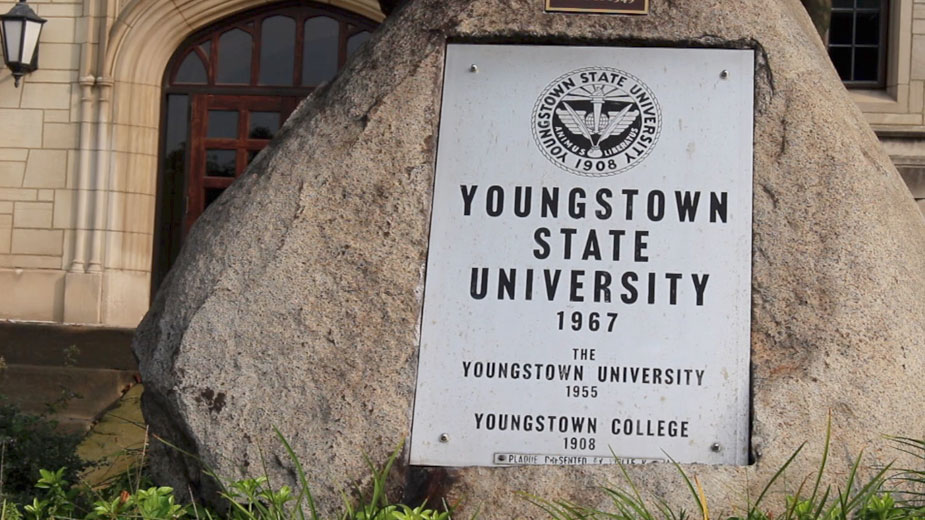By Ron Cole
Director of University Communications
YOUNGSTOWN, Ohio — Typically, only about 10% of the approximately 3,000 courses offered by Youngstown State University every semester are taught fully online. That means 90%, or right around 2,700, are taught in traditional campus classroom settings.
So, imagine being told to take all of those 2,700 traditional classes – taught by hundreds of faculty to more than 12,000 students across more than 100 disciplines, 36 academic departments and six academic colleges – and transition them out of the classroom and to fully online-only classes that students can take at home.
And do it in 13 days.
That’s the challenge the YSU family faced the week of March 8 when the coronavirus took a grip on the United States. While students enjoyed spring break, YSU began making plans to keep students off campus and to gear up to offer all classes remotely for the remainder of the Spring semester.
“Unheard of,” said Brien Smith, YSU provost and vice president of Academic Affairs. “But we were determined to make it happen.”
On Monday, March 23, after a two-week “extended” spring break and a gargantuan effort involving hundreds of hours of hard work, innovation and perseverance, YSU resumed the spring semester, this time with 100% online classes.
“Part of our mission statement says that the university places students at its center,” said Chet Cooper, professor of biological sciences and chair of the YSU Academic Senate. “That principle has never before been more evident than over these past few days.”
Barriers were many, including technology. In less than two weeks, YSU’s Information Technology Services established a YSU Cloud environment from scratch, a project that would normally take three to six months, said Jim Yukech, YSU chief information officer. The cloud allows faculty, staff and students to access software previously only accessible in campus computer labs.
Another concern – students and faculty who didn’t have access off-campus to the technology needed to teach and learn online. So, the university scrambled and set about to obtain 400 laptops, 100 wireless hotspots and 100 USB headsets and webcams for distribution.
Yet another challenge – providing the resources, training and other support to help faculty transform courses to remote instruction. So, the university formed the Academic Continuity Team, consisting of faculty, staff and students from across campus. In one week, the team conducted 20 training sessions, 53 hours of consultation services, formed a Blackboard Ambassadors group to guide faculty on how to best use Blackboard instructional software and launched a website with tips, FAQs and dozens of other resources.
“This is a big task, but the faculty we’ve worked with have been focused on making sure that their students will not be disadvantaged and that they will be able to move forward with their educational goals as smoothly as possible,” said Hillary Fuhrman, interim director of the YSU Institute for Teaching and Learning and a member of ACT. “They have been supportive, thankful for resources, and all going above and beyond to make this shift successful. It has truly been inspiring to see.”
And there were dozens of other details, decisions and questions:
- Advising, tutoring, etc.? Academic areas, the Center for Student Progress and other academic support areas have switched to virtual services, including online tutoring.
- What about students in university residence halls? A process was implemented to have students move out of their rooms, while tending to about 70 residential students who needed to remain.
- What about the campus? All campus and university-sponsored events have been cancelled through May. Buildings were locked.
- The bookstore? Closed, but is offering free access to digital textbooks and online self-tutoring and writing resources.
- What about the rest of the semester calendar? The Academic Senate set new deadlines for students to withdraw from a course, to get an Incomplete grade, and instituted a credit/no credit option for classes.
- Commencement? Set for May 9, postponed, with hopes for an event later in the summer.
As March 23 approached, deans, department chairs, faculty and others began reaching out to students.
The Bitonte College of Health and Human Services, the Honors College and the Williamson College of Business Administration hosted virtual town hall meetings to connect with students, while President Jim Tressel connected via video, email and social media. Student Counseling Services, anticipating increased anxiety among students and employees, established remote mental health sessions and resources.
“Our focus all along has been keeping everyone safe, ensuring our students progress in their academics and helping our seniors graduate on time and as planned,” Tressel said. “There’s been an incredible amount of work getting us in the position to accomplish all three of those. While the situation continues to evolve, and while we know there will be other challenges ahead, we are hopeful that we can help our students successfully maneuver through these difficult times.”
